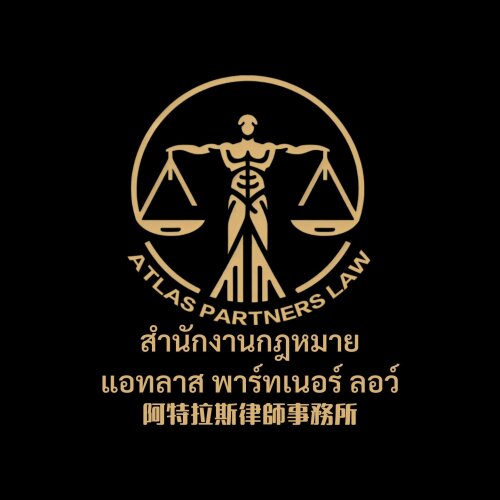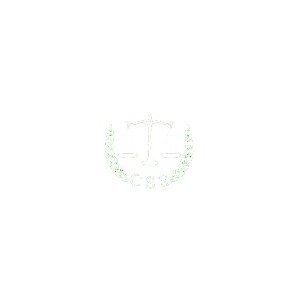1. เกี่ยวกับกฎหมายการบริหารกองทุนและสินทรัพย์ในเชียงใหม่, ประเทศไทย
กฎหมายที่ควบคุมการบริหารกองทุนและสินทรัพย์ใช้บังคับทั่วประเทศ รวมถึงเชียงใหม่ด้วย เพราะทรัพย์สินและการลงทุนมีลักษณะข้ามพื้นที่ได้ง่าย
กรอบกฎหมายสำคัญเน้นไปที่การคุ้มครองผู้ลงทุน ความโปร่งใสในการบริหาร และการบังคับใช้โดยหน่วยงานรัฐอย่าง ก.ล.ต. และหน่วยงานที่เกี่ยวข้อง
การปรึกษาทนายความเฉพาะด้านจะช่วยให้คุณเข้าใจข้อจำกัด, สิทธิหน้าที่ และขั้นตอนที่ถูกต้องตามกฎหมายในบริบทเชียงใหม่
2. ทำไมคุณอาจต้องการทนายความ
บริหารทรัพย์สินครอบครัวในเชียงใหม่ คุณอาจต้องการคำแนะนำในการจัดตั้งกองทุนครอบครัวเพื่อสืบทอดการบริหารทรัพย์สินและลดข้อพิพาทระหว่างทายาทในพื้นที่ภาคเหนือ
วางแผนมรดกทรัพย์สินในเชียงใหม่ กรณีมีอสังหาริมทรัพย์หลายรายการในจังหวัดเชียงใหม่ การแบ่งมรดกต้องสอดคล้องกฎหมายและโฉนดที่ดินหลายแผ่น
สัญญาการบริหารกองทุน ต้องมีขอบเขตหน้าที่ ผู้รับผิดชอบ และเงื่อนไขการถอนเงิน เพื่อป้องกันข้อพิพาทภายหลัง
ข้อพิพาทเกี่ยวกับทรัพย์สินในพื้นที่ภาคเหนือ กรณีทะเลาะกันเรื่องสิทธิการครอบครองหรือการจัดการทรัพย์สินระหว่างครอบครัวหรือหุ้นส่วนในเชียงใหม่
การทำสัญญากับผู้ดูแลทรัพย์สิน เช่น ผู้ดูแลมรดก หรือผู้จัดการอสังหาริมทรัพย์ในเชียงใหม่ เพื่อให้การบริหารเป็นไปตามข้อบังคับ
การลงทุนในกองทุนรวมหรือสินทรัพย์ทางการเงิน ต้องมั่นใจว่าเป็นไปตามกรอบกฎหมายหลักทรัพย์และข้อกำหนดของ ก.ล.ต. เพื่อความมั่นคงในการลงทุนในเชียงใหม่
“ผู้ประกอบการกองทุนรวมต้องได้รับใบอนุญาตจาก ก.ล.ต. และปฏิบัติตามกฎเกณฑ์ที่กำหนด”
อ้างอิงแนวทางการกำกับดูแลจากสำนักงานคณะกรรมการกำกับหลักทรัพย์และตลาดหลักทรัพย์ (SEC)
3. ภาพรวมกฎหมายท้องถิ่น
พระราชบัญญัติตลาดทุน พ.ศ. 2535 (และการปรับปรุงล่าสุด)
กรอบกฎหมายหลักในการบริหารกองทุนรวมและสินทรัพย์ที่เกี่ยวข้องกับการลงทุนด้วยหลักทรัพย์ในประเทศไทย รวมถึงกรณีที่มีการลงทุนจากเชียงใหม่ด้วย
หน่วยงานที่กำกับดูแลคือ กรรมการกำกับหลักทรัพย์และตลาดหลักทรัพย์ (SEC) ซึ่งออกข้อบังคับและประกาศที่ผูกพันผู้ประกอบการ
https://www.sec.or.th
พระราชบัญญัติคุ้มครองข้อมูลส่วนบุคคล พ.ศ. 2562
PDPA กำหนดกรอบการประมวลผลข้อมูลส่วนบุคคลที่เกี่ยวข้องกับทรัพย์สินและการบริหารกองทุน เพื่อคุ้มครองข้อมูลส่วนบุคคลลูกค้าและผู้มีส่วนได้เสีย
ข้อบังคับนี้มีผลทันทีในทุกจังหวัดรวมถึงเชียงใหม่ และต้องปฏิบัติตามเมื่อเก็บข้อมูลส่วนบุคคลในการบริหารทรัพย์สิน
https://www.pdpa.go.th
กฎหมายองค์กรปกครองส่วนท้องถิ่นและระเบียบที่เกี่ยวข้องกับการบริหารทรัพย์สิน
เชียงใหม่ใช้กฎหมายท้องถิ่นร่วมกับกฎหมายระดับประเทศ โดยเฉพาะระเบียบข้อบังคับขององค์การปกครองส่วนท้องถิ่นที่อาจมีผลต่อการบริหารทรัพย์สินขององค์กรในพื้นที่
ผู้ดำเนินการควรตรวจสอบเทศบัญญัติ/ระเบียบของหน่วยงานท้องถิ่นในเชียงใหม่เพื่อให้การบริหารทันสมัยและสอดคล้องกับข้อกำหนดท้องถิ่น
https://www.moj.go.th
4. คำถามที่พบบ่อย
อะไรคือบทบาทของทนายความในการบริหารกองทุนและสินทรัพย์ในเชียงใหม่?
ทนายความช่วยร่างสัญญา ตรวจสอบข้อบังคับ และระบุความเสี่ยงทางกฎหมาย นอกจากนี้ยังช่วยประสานงานกับหน่วยงานรัฐที่เกี่ยวข้องในเชียงใหม่
อย่างไรจึงเริ่มกระบวนการจ้างทนายความด้านการบริหารกองทุนในเชียงใหม่ได้?
กำหนดขอบเขตงาน ประมาณการค่าใช้จ่าย และนัดปรึกษาเบื้องต้น จากนั้นเปรียบเทียบข้อเสนอจากสำนักงานกฎหมายในเชียงใหม่
เมื่อไหร่ควรปรึกษาทนายความก่อนตั้งกองทุนครอบครัวในเชียงใหม่?
ควรปรึกษาในขั้นตอนเริ่มต้นก่อนยื่นเอกสารตามกฎหมาย เพื่อออกแบบโครงสร้างที่ชัดเจนและถูกต้องตั้งแต่แรก
ที่ไหนควรเก็บเอกสารสำคัญสำหรับการบริหารกองทุนและสินทรัพย์ในเชียงใหม่?
เก็บไว้ในที่ปลอดภัยและสำรองสำเนา เช่น ตู้เซฟที่บ้าน หรือที่ปลอดภัยของธนาคาร พร้อมสำเนาเอกสารดิจิทัลที่เข้ารหัส
ทำไมควรมีสัญญาการบริหารกองทุนที่ชัดเจนในเชียงใหม่?
เพื่อลดข้อพิพาทเรื่องหน้าที่ ความรับผิดชอบ และการชำระเงินระหว่างผู้มีส่วนได้เสียในพื้นที่
สามารถระบุค่าใช้จ่ายในการว่าจ้างทนายความได้อย่างไรในเชียงใหม่?
ส่วนใหญ่มีค่าใช้จ่ายเป็นค่าธรรมเนียมรอบเดือน หรือคิดเป็นเปอร์เซ็นต์ของมูลค่าทรัพย์สิน โดยมีรายการค่าใช้จ่ายที่แน่นอนในสัญญา
ควรเตรียมเอกสารอะไรบ้างเมื่อเริ่มกระบวนการบริหารกองทุนในเชียงใหม่?
หลักฐานตัวตน โฉนดที่ดิน หนังสือสัญญาเงินทุน ใบแจ้งหนี้ และรายการทรัพย์สินทั้งหมดที่เกี่ยวข้องในเชียงใหม่
ความแตกต่างระหว่างการบริหารกองทุนโดยทนายความและไม่ใช่ทนายคืออะไร?
ทนายความให้ความถูกต้องตามกฎหมาย ป้องกันข้อพิพาท และช่วยวางกรอบสัญญา ในขณะที่ไม่ใช่ทนายอาจขาดความละเอียดทางกฎหมาย
รูปแบบการให้บริการของทนายความด้านการบริหารกองทุนมีอะไรบ้าง?
มีทั้งที่ปรึกษาแบบระยะสั้น ปรึกษาเป็นโครงการ หรือรับจ้างดำเนินการครบวงจร ตั้งแต่ร่างสัญญาถึงติดตามคดี
เมื่อเกิดข้อพิพาทเกี่ยวกับทรัพย์สินในเชียงใหม่ควรทำอย่างไร?
ปรึกษาทนายความทันทีเพื่อประเมินทางเลือกทางกฎหมายและพิจารณาขั้นตอนฟ้องร้องหรือต่อรอง
ทำไมควรเลือกทนายความที่มีประสบการณ์ในเชียงใหม่โดยเฉพาะ?
การเข้าใจบริบทท้องถิ่นและข้อกำหนดท้องถิ่นที่เฉพาะเจาะจงจะช่วยให้ได้คำแนะนำที่ตรงกับสภาพพื้นที่
ฉันควรเตรียมอะไรเมื่อปรึกษากฎหมายในเชียงใหม่ครั้งแรก?
เตรียมเอกสารทรัพย์สินที่เกี่ยวข้อง แผนการบริหารกองทุน และคำถามที่ต้องการคำตอบให้ชัดเจน
5. ทรัพยากรเพิ่มเติม
- สำนักงานคณะกรรมการกำกับหลักทรัพย์และตลาดหลักทรัพย์ (SEC) เว็บไซต์ทางการเกี่ยวกับกฎหมายหลักทรัพย์และกองทุน: https://www.sec.or.th
- สำนักงานคุ้มครองข้อมูลส่วนบุคคล (PDPA) หน่วยงานกำกับดูแลข้อมูลส่วนบุคคล: https://www.pdpa.go.th
- กรมพัฒนาธุรกิจการค้า (DBD) ข้อมูลเกี่ยวกับการจัดตั้งและบริหารธุรกิจในไทย: https://www.dbd.go.th
6. ขั้นตอนถัดไป
- กำหนดความต้องการและขอบเขตการบริหารกองทุนในเชียงใหม่ - 1-2 สัปดาห์
- ค้นหาทนายความที่เชี่ยวชาญด้านการบริหารกองทุนและมีประสบการณ์ในเชียงใหม่ - 1-3 สัปดาห์
- ตรวจสอบใบอนุญาต ประวัติการทำงาน และกรณีศึกษาเดิมของทนายความ - 1 สัปดาห์
- นัดปรึกษาเบื้องต้น (ประเมินแนวทาง แผนงาน และค่าใช้จ่าย) - 1-2 สัปดาห์
- ขอประมาณการค่าใช้จ่ายเป็นลายลักษณ์อักษรและเงื่อนไขการชำระ - 1 สัปดาห์
- เซ็นสัญญาและเริ่มดำเนินการตามแผนที่ตกลงไว้ - 1-4 สัปดาห์
- ติดตามผลและปรับแผนการบริหารหากจำเป็น โดยทนายความในเชียงใหม่ - ต่อเนื่อง
Lawzana ช่วยคุณค้นหาทนายความและสำนักงานกฎหมายที่ดีที่สุด ใน เชียงใหม่ ผ่านรายชื่อผู้เชี่ยวชาญด้านกฎหมายที่มีคุณสมบัติเหมาะสมที่คัดสรรและตรวจสอบล่วงหน้า แพลตฟอร์มของเรานำเสนอการจัดอันดับและโปรไฟล์โดยละเอียดของทนายความและสำนักงานกฎหมาย ช่วยให้คุณเปรียบเทียบตามสาขากฎหมาย รวมถึง การบริหารกองทุนและสินทรัพย์ ประสบการณ์ และความคิดเห็นของลูกค้า
แต่ละโปรไฟล์ประกอบด้วยคำอธิบายเกี่ยวกับสาขากฎหมายของสำนักงาน รีวิวจากลูกค้า สมาชิกในทีมและหุ้นส่วน ปีที่ก่อตั้ง ภาษาที่พูด ที่ตั้งสำนักงาน ข้อมูลการติดต่อ การมีตัวตนบนโซเชียลมีเดีย และบทความหรือแหล่งข้อมูลที่เผยแพร่ สำนักงานส่วนใหญ่บนแพลตฟอร์มของเราพูดภาษาอังกฤษและมีประสบการณ์ทั้งในเรื่องกฎหมายท้องถิ่นและระหว่างประเทศ
ขอใบเสนอราคาจากสำนักงานกฎหมายชั้นนำ ใน เชียงใหม่, ประเทศไทย — รวดเร็ว ปลอดภัย และไม่ยุ่งยาก
ข้อจำกัดความรับผิดชอบ:
ข้อมูลที่ให้ไว้ในหน้านี้มีวัตถุประสงค์เพื่อเป็นข้อมูลทั่วไปเท่านั้นและไม่ถือเป็นคำแนะนำทางกฎหมาย แม้ว่าเราจะพยายามตรวจสอบความถูกต้องและความเกี่ยวข้องของเนื้อหา แต่ข้อมูลทางกฎหมายอาจเปลี่ยนแปลงได้ตามกาลเวลา และการตีความกฎหมายอาจแตกต่างกันไป คุณควรปรึกษาผู้เชี่ยวชาญด้านกฎหมายที่มีคุณสมบัติเหมาะสมเพื่อขอคำแนะนำเฉพาะสำหรับสถานการณ์ของคุณเสมอ
เราปฏิเสธความรับผิดทั้งหมดสำหรับการกระทำที่ทำหรือไม่ทำตามเนื้อหาในหน้านี้ หากคุณเชื่อว่าข้อมูลใดไม่ถูกต้องหรือล้าสมัย โปรด contact us และเราจะตรวจสอบและแก้ไขตามความเหมาะสม















